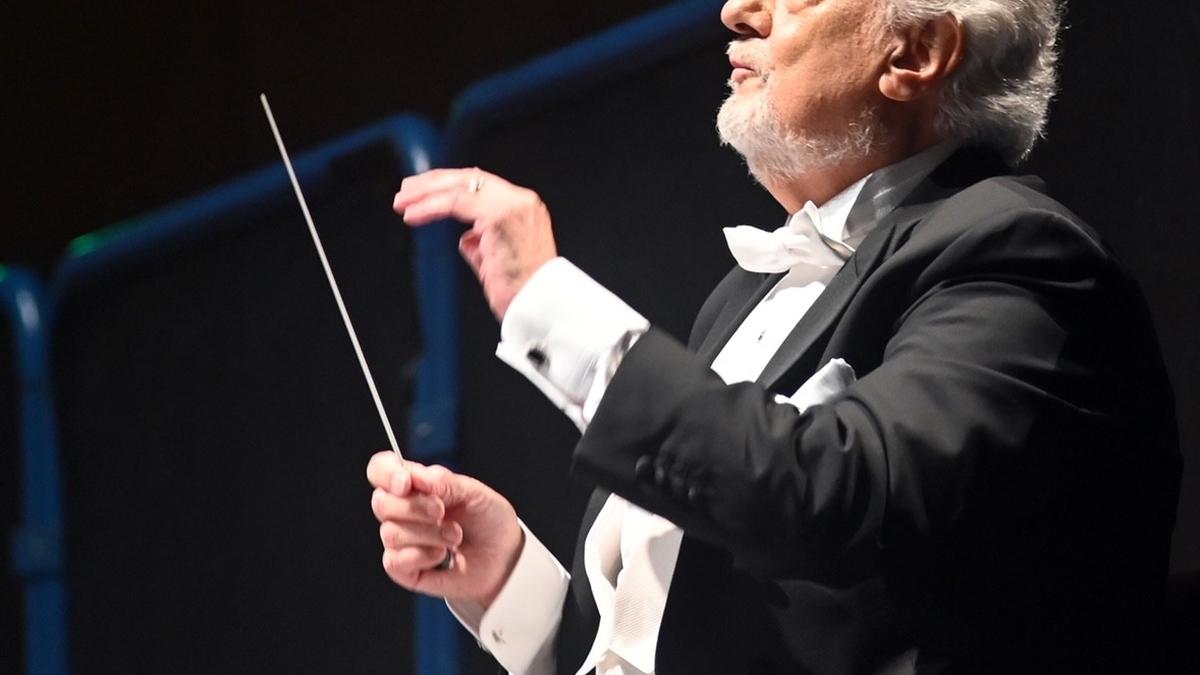
What brought Placido Domingo of ‘The Three Tenors’ fame to Mumbai?
The Hindu
Spanish tenor Placido Domingo conducts Operalia finals in Mumbai
Any conversation with legendary Spanish tenor Placido Domingo has to include The Three Tenors, his project with Italian great Luciano Pavarotti and fellow Spaniard Jose Carreras. Their album Carreras Domingo Pavarotti In Concert, featuring Mumbai-born conductor Zubin Mehta, contained a recording of their live performance on the eve of the 1990 FIFA World Cup in Rome. It became the largest-selling western classical album, with 10 million units sold by the Decca label.
Though it is Placido’s best-known work, it is only one of a string of achievements by the maestro. He’s performed 151 different roles in opera, and from his generation is the best-known performer of the role of Otello in Giuseppe Verdi’s opera of the same name, inspired by William Shakespeare’s Othello. By singing popular English songs in an operatic style, he reached out to a new audience. His pet project, of course, is Operalia, an annual opera singing competition, he started in 1993.
Placido was in Mumbai in mid-September for the final rounds of Operalia, held at the Jamshed Bhabha Theatre of the National Centre For The Performing Arts (NCPA). It was the first time the event was held in South Asia, and in the grand finale, 12 singers contested for various prizes in operatic arias and zarzuela, a Spanish form of operetta. Lasting two hours, the finals featured the Symphony Orchestra of India conducted by Placido and Kamal Khan.
It was Placido’s second performance in Mumbai. In 2008, he had come as a singer on the invitation of Zubin Mehta, for his father Mehli Mehta’s birth centenary celebrations. “That time, I sang with the Israel Philharmonic Orchestra. I still love singing, but these days, I am focusing more on conducting, and Operalia in Mumbai is another step in that journey,” he says.
Born in Madrid, Spain, on January 21, 1941, Placido was exposed to zarzuela at an early age, as his parents practised that form. The family shifted to Mexico, where they started a zarzuela company. Besides singing, the young boy would go backstage and help in setting up shows. He learnt piano, singing and conducting, and initially took on several baritone roles. When the tenor of another company suddenly fell ill, he took up that role. This marked a switch, and at 20, he made his operatic debut in a leading role as tenor Alfredo in Verdi’s La Traviata. In fact, La Traviata was also the first opera he conducted in 1973 for the New York City Opera.
After making a name in the opera world, Placido tried to expand the genre’s following through classical crossover projects. In 1981, he collaborated with country-pop star John Denver on the album Perhaps Love, doing opera-influenced versions of hit tunes like ‘Annie’s Song’, ‘Yesterday’ and ‘Time After Time’. Though purists didn’t welcome his experiment, the album made it to the top 20 of the U.S. and U.K. charts. He also experimented with Latin and Central American forms like tango and mariachi, expanding his repertoire.
Placido says he didn’t imagine The Three Tenors would achieve such phenomenal success. He recalls, “I have known Zubin since 1962, and when Jose talked of three of us performing under Zubun’s baton, it seemed very exciting. We all did individual songs, but sang ‘O Sole Mio’ and ‘Nessun Dorma’ as a trio.”













